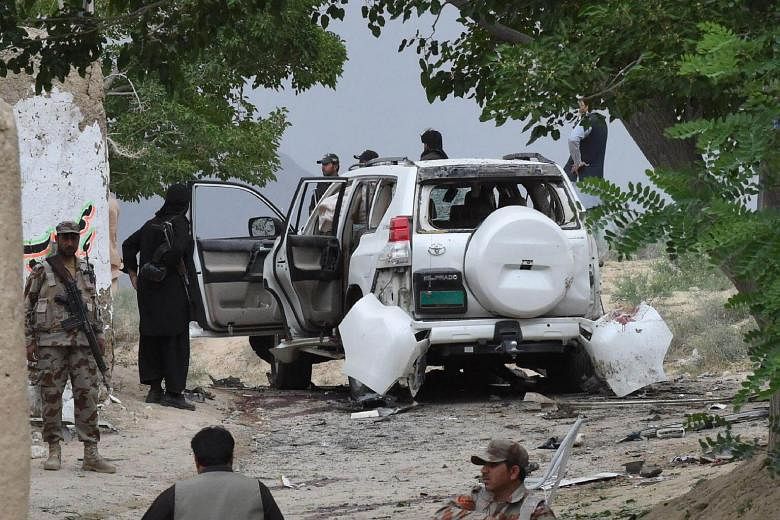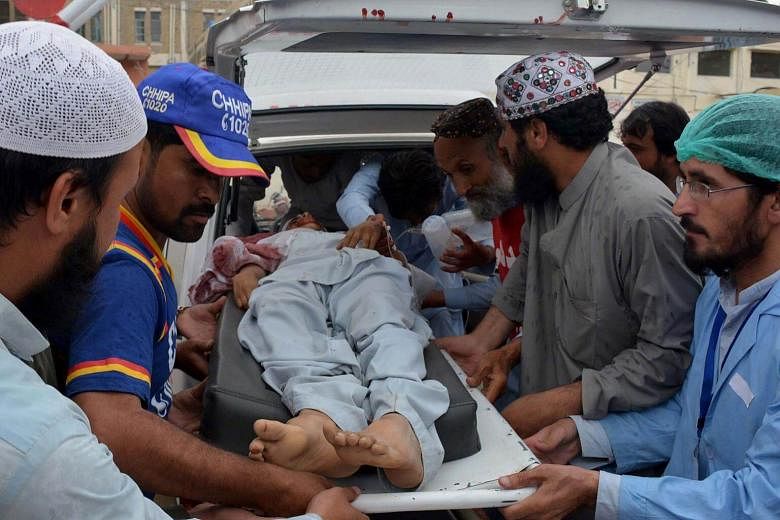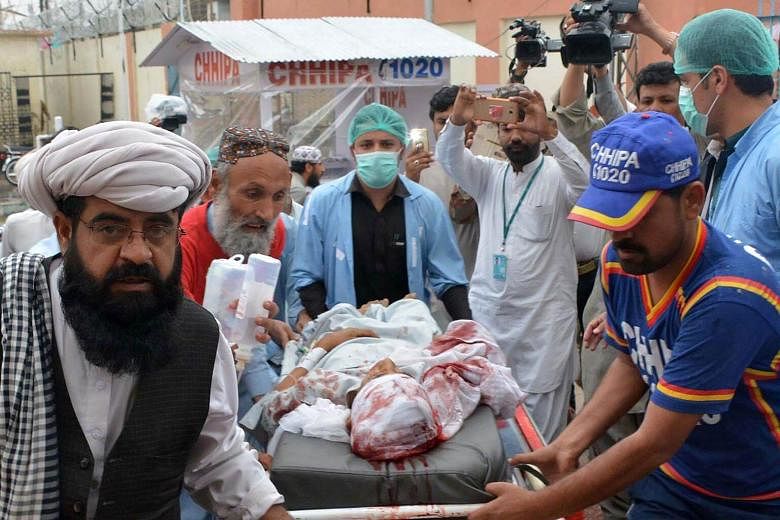QUETTA, Pakistan (AFP) - A "huge" explosion in Pakistan's restive southwestern Balochistan province that apparently targeted a top senator's convoy killed at least 17 people and wounded many others, officials said on Friday (May 12).
The blast in Mastung district, roughly an hour east of provincial capital Quetta, struck a vehicle carrying the deputy chairman of Pakistan's upper house Maulana Abdul Ghafoor Haideri, he told reporters.
"I am alive, Allah has saved my life, it was a sudden blast, broken pieces of the windscreen hit me, I am injured but safe. The driver and other people sitting next to me were badly injured," Haideri said on private TV channel SAMAA.
Television footage showed vehicles twisted by the blast as security forces cordoned off the site.
"The death toll has reached 17 and more than 30 people have been injured," said Dr Daad Muhammad, a hospital administrator.
No group immediately claimed responsibility for the attack.
"It is not yet clear whether it was a planted bomb or a suicide attack," said police official Safar Khan added.
Haideri is a top official of Jamiat Ulema-e-Islam Fazl (JUI-F), one of the country's most powerful religious political parties.
JUI-F has been targeted by the Pakistani Taleban in the past - even though the party leaders have acted as negotiators between the militants and Pakistan government in the past.
Pakistan has been battling Islamist and nationalist insurgencies in mineral-rich Balochistan since 2004, with hundreds of soldiers and militants killed in the fighting.
Bordering Iran and Afghanistan, it is the largest of Pakistan's four provinces, but its roughly seven million inhabitants have long complained they do not receive a fair share of its gas and mineral wealth.
A greater push towards peace and development by Pakistani authorities has reduced the violence considerably in recent years.
The push includes starting work on a massive Chinese infrastructure project - the China-Pakistan Economic Corridor - which gives Beijing a route to the Arabian Sea through Balochistan's deep sea port of Gwadar.



